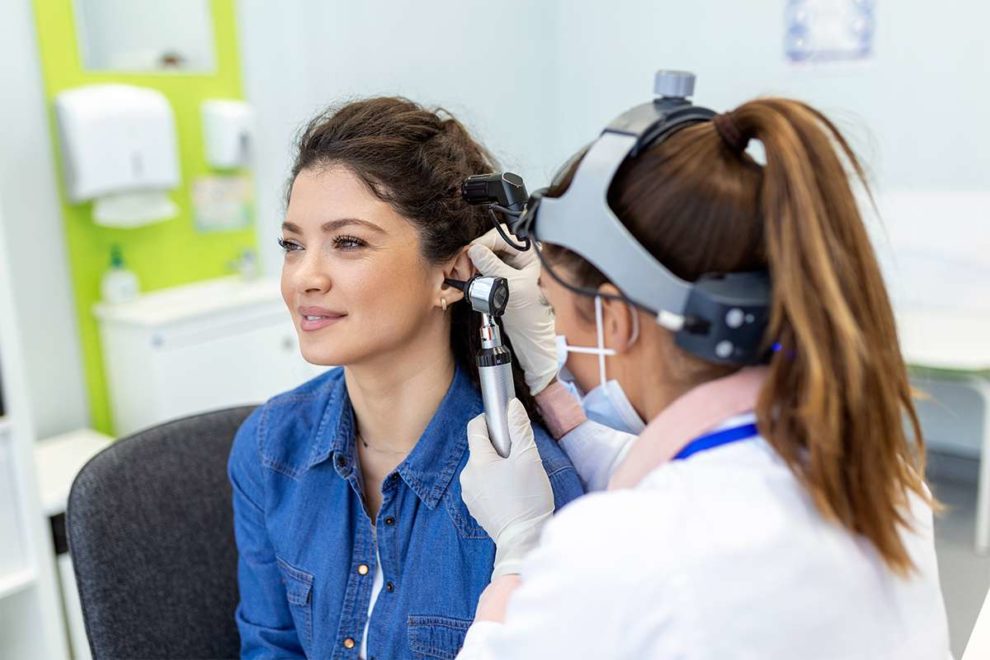Audiologists are educated professionals who use their specific knowledge to diagnose and treat hearing loss. They also work with people who have tinnitus and balance problems.
They also provide counseling and education about hearing disorders to help patients manage their conditions and stay engaged. They may work at medical clinics, schools, hospitals, private practices, and hearing aid manufacturers.
Table of Contents
Evaluation
Audiologists from online hearing test evaluate, diagnose, treat, and manage hearing loss in patients of all ages. They are licensed medical professionals with advanced specialized training, allowing them to identify and treat ear disorders with a wide range of equipment and technology.
A thorough evaluation of a patient’s hearing includes a series of tests determining the type, degree, and configuration of their hearing loss. The tests allow an audiologist to create a customized treatment plan based on each individual’s needs.
The evaluation begins with a consultation where the audiologist asks questions about a patient’s health history and symptoms. This information allows the audiologist to get a clear idea of the patient’s hearing loss and what is going on in their daily life.
Testing
After an interview, the audiologist will administer various testing procedures to assess the patient’s hearing. The most common testing procedures include pure tone audiometry, speech tests, and tympanometry.
Pure tone audiometry is a gold standard in determining the type, degree, and configuration of a patient’s hearing loss. It can identify conductive hearing losses as well as sensorineural hearing losses. It can also help audiologists detect conditions such as Meniere’s disease or ototoxic medications.
The middle ear function tests are essential because they help determine whether the eardrum is moving correctly and whether the pressure inside the ear is normal.
A comprehensive hearing assessment can be completed for an infant or a child as early as two years of age. It is a vital step in helping to ensure that hearing loss is diagnosed and treated on time. It is essential in children with a family history of hearing loss. It can also help assess the acoustic environment and whether the child’s hearing is affected by noise.
Diagnosis
Audiologists typically use several tests to determine the extent of a patient’s hearing loss. They chart the results of these tests on an audiogram, which is a graphic representation of your hearing thresholds.
Some hearing losses are permanent. They are called sensorineural hearing losses and can happen in babies who inherit hearing problems or those with head injuries or infections. They can be treated with hearing aids, assistive devices, or cochlear implants.
Treatment
Audiologists provide a wide range of services that help patients hear and feel better. They also work with various other healthcare professionals, including doctors, speech-language pathologists, physical therapists, and social workers, to ensure their patients receive the best care possible.
Audiologist treatments include counseling and educating the patient on preventing hearing loss, tinnitus management, lip-reading, aural rehabilitation, and using assistive listening devices. They may also arrange and manage cochlear implants, which can improve a patient’s quality of life.
They are highly trained in how sounds travel through different parts of the ear and how to make them sound clearer to listeners, especially when people are slurring their speech or talking to people in a noisy environment. They use a variety of tests to confirm your hearing loss and design a treatment plan for you.
The audiologist will then create a personalized treatment plan for you to your needs and goals. They will help you find the best hearing aids for your needs, ensure you understand how to use them, and teach you and your loved ones about coping with your hearing loss.
Education
Many audiologists work in a team alongside other healthcare professionals such as doctors, speech-language pathologists, and physical therapists. They are often found in hospitals, Ear Nose and Throat Specialist offices, and balance centers to assess and treat hearing, ear and neck disorders, and vestibular problems.
In addition to helping patients, audiologists also contribute to advancing technology and science. They are constantly developing and testing new devices for use in various settings, such as hearing aids and assistive listening devices.
Their state’s licensing board must license audiologists to practice in this allied health field. It is done by passing a national exam and meeting state requirements. In addition to these requirements, audiologists must continue their education through continuing education units.




Add Comment